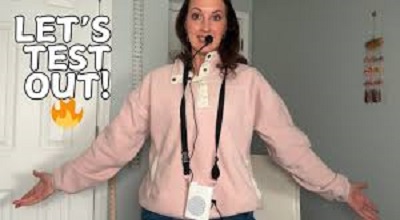Teacher Voice Amplification
Teacher Voice Amplification: In modern classrooms, effective communication is key to student engagement and learning. One of the most overlooked yet critical aspects of teaching is voice amplification. Teachers often strain their voices due to large class sizes, poor acoustics, or extended speaking periods. Fortunately, advancements in voice amplification technology are revolutionizing how educators project their voices effortlessly.
This comprehensive guide explores the latest trends, benefits, and best practices in teacher voice amplification. Whether you’re an educator, school administrator, or tech enthusiast, this post will help you understand why voice amplification is essential and how to choose the best system for your needs.
Why Teacher Voice Amplification Matters?
The Problem of Vocal Strain in Teaching
Teachers speak for hours every day, often in noisy environments. Without proper amplification, they risk:
- Vocal fatigue and hoarseness
- Long-term voice damage (e.g., nodules, polyps)
- Reduced student engagement due to unclear speech
Impact on Student Learning
Research shows that amplified teacher voices lead to:
- Better comprehension (especially for students with hearing difficulties)
- Increased attention spans
- Reduced classroom disruptions
Latest Trends in Voice Amplification Technology
Wireless and Bluetooth-Enabled Systems
Modern voice amplifiers now feature:
- Bluetooth connectivity for seamless integration with microphones and audio devices
- Rechargeable batteries (no more frequent AA battery changes)
- Lightweight, wearable designs (lapel mics, headset mics)
AI-Powered Noise Cancellation
Some high-end models use AI to filter background noise, ensuring crystal-clear voice projection.
Multi-Speaker Classroom Audio Systems
Schools are adopting distributed speaker systems that evenly distribute sound throughout the room, benefiting every student.
Top Voice Amplification Systems for Teachers
Here are some of the best voice amplifiers in 2024:
1. FrontRow Juno
- Wireless microphone with long battery life
- Portable speaker with clear sound projection
2. TeachLogic SoundCom
- Bluetooth-enabled
- Voice enhancement technology
3. Phonak Roger Touchscreen Mic
- Advanced noise reduction
- Ideal for large classrooms
Read More: Multimodal AI
Benefits of Using a Voice Amplifier in the Classroom
✅ Reduces vocal strain
✅ Improves student focus
✅ Enhances accessibility for hearing-impaired students
✅ Increases teacher energy levels (less shouting = less fatigue)
How to Choose the Right Voice Amplification System?
- Consider these factors:
- Classroom size (small vs. large rooms)
- Battery life (rechargeable vs. disposable batteries)
- Microphone type (lapel, headset, handheld)
- Budget (entry-level vs. premium models)
Best Practices for Using Voice Amplifiers
- Test the system before class
- Adjust volume to avoid distortion
- Encourage student feedback on sound clarity
Frequently Asked Questions (FAQs)
Q: Do voice amplifiers work for outdoor teaching?
A: Yes, many portable amplifiers are suitable for outdoor use.
Q: Can multiple teachers share one amplifier?
A: Some systems support multiple microphones, making sharing easy.
Conclusion
Teacher voice amplification is no longer a luxury—it’s a necessity for modern education. With the latest advancements in wireless technology, AI noise cancellation, and ergonomic designs, educators can now teach more effectively while protecting their vocal health.
Free Here: Streamflix APK
